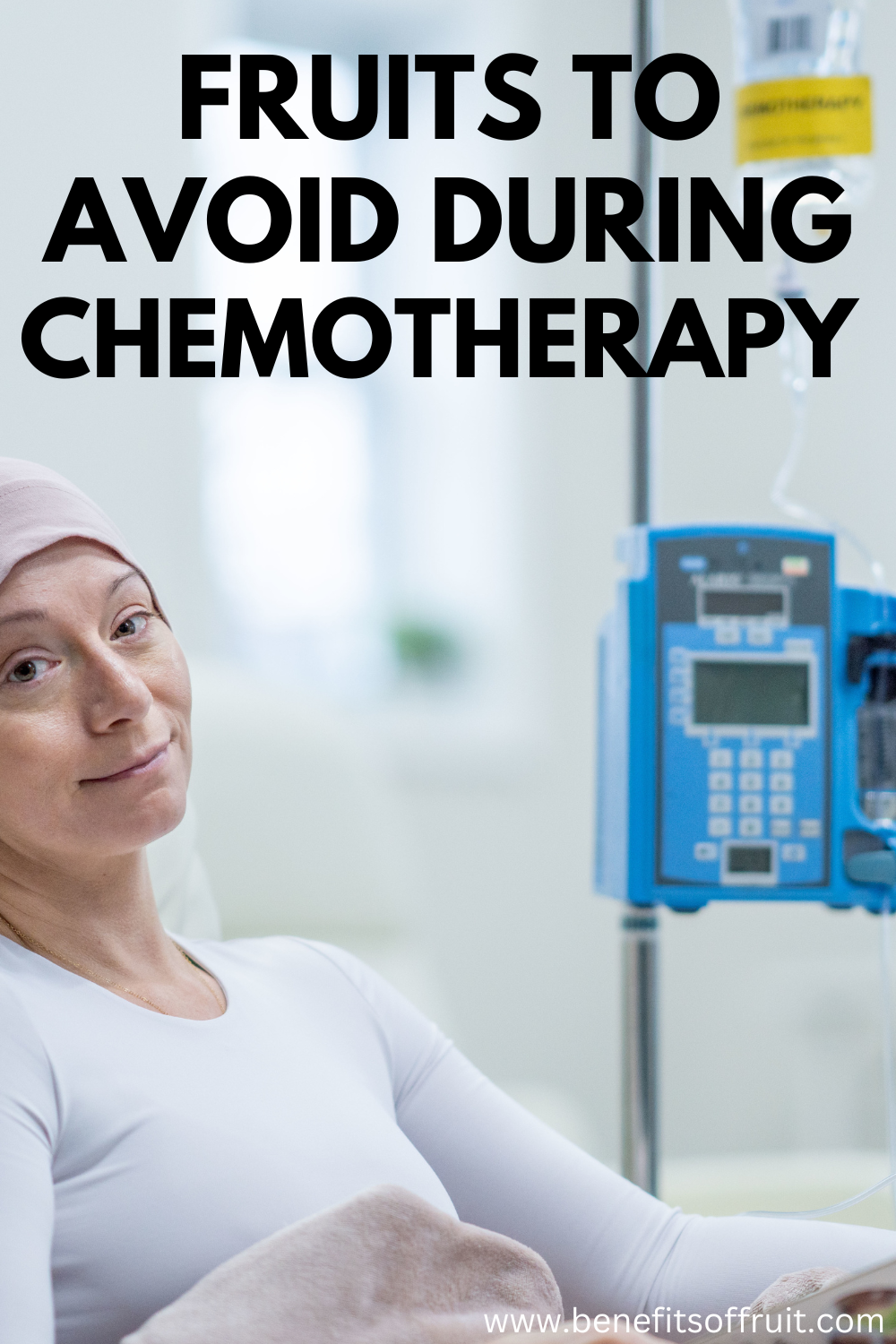Chemotherapy, a common treatment for cancer, has profound effects on the body. It targets rapidly dividing cells, which often results in side effects that extend beyond the tumor, affecting the digestive system, immune response, and overall energy levels. Maintaining a healthy diet during chemotherapy is crucial to support the body’s healing and coping mechanisms. However, some fruits can potentially hinder recovery or exacerbate treatment side effects. Understanding which fruits to avoid during chemotherapy is essential for optimizing health and treatment efficacy.
Understanding Chemotherapy and Dietary Considerations
Chemotherapy disrupts the normal functioning of the body, often causing nausea, mouth sores, and digestive issues like constipation or diarrhea. These side effects make it challenging to maintain a balanced diet. Moreover, chemotherapy weakens the immune system, making patients more susceptible to infections and illnesses. Therefore, the dietary focus during chemotherapy should be on foods that are easy to digest, boost immunity, and do not interfere with treatment.
Fruits to Avoid During Chemotherapy
Citrus Fruits
While citrus fruits are generally rich in vitamins and antioxidants, their high acidity can be problematic for patients undergoing chemotherapy. Mouth sores, a common side effect, can be aggravated by acidic foods, leading to increased discomfort and pain. Moreover, citrus fruits may contribute to heartburn and acid reflux, which can worsen the already delicate condition of a chemotherapy patient’s digestive system.
Unwashed and Raw Fruits
During chemotherapy, the immune system is compromised, making patients more vulnerable to infections. Unwashed and raw fruits carry the risk of bacterial contamination, which can lead to infections like food poisoning. Even fruits that appear clean may harbor bacteria, so it’s advisable to avoid eating unwashed and raw fruits to prevent unnecessary health risks.
Dried Fruits
Dried fruits, while convenient and nutrient-dense, contain concentrated sugars that can lead to gastrointestinal distress, including diarrhea and bloating, common side effects of chemotherapy. Additionally, the high sugar content can cause spikes in blood sugar levels, which may negatively affect patients who are sensitive to blood glucose changes.
Grapefruit
Grapefruit is particularly notorious for its interaction with a variety of medications. It contains compounds that inhibit the action of certain enzymes responsible for metabolizing drugs, which can alter the effectiveness of chemotherapy drugs. This can either enhance or reduce the potency of the drugs, leading to unpredictable side effects or diminished therapeutic outcomes.
Fruits High in Fiber
While fiber is generally beneficial for digestive health, excessive intake can exacerbate digestive problems, especially for chemotherapy patients who often suffer from digestive issues. High-fiber fruits can increase bloating, gas, and diarrhea, making them less suitable for those undergoing treatment.
Unripe or Hard-to-Digest Fruits
Unripe fruits are harder to digest and can strain the already sensitive digestive system of chemotherapy patients. The higher starch content in unripe fruits makes them less suitable, as they require more digestive effort, potentially leading to gastrointestinal discomfort.
The Impact of Each Fruit on Chemotherapy Patients
Each fruit mentioned can impact chemotherapy patients in distinct ways. Citrus fruits can worsen mouth sores and acid reflux, while unwashed and raw fruits pose a risk of infection due to a compromised immune system. Dried fruits, with their concentrated sugars, can exacerbate gastrointestinal issues and affect blood sugar levels. Grapefruit, due to its interference with drug metabolism, can alter chemotherapy drug efficacy. High-fiber fruits can cause bloating and diarrhea, and unripe fruits can strain the digestive system due to their hardness and high starch content.
Alternative Fruits and Their Benefits
Soft, Easy-to-Digest Fruits
Ripe bananas and cooked apples are gentle on the digestive system and provide essential nutrients. Bananas are rich in potassium, which helps with muscle function and electrolyte balance. Cooked apples, with their soft texture, are easy to digest and provide fiber in a gentle form.
Non-Citrus Fruits Low in Acidity
Watermelon and mango are hydrating and rich in vitamins without the high acidity found in citrus fruits. Watermelon is mostly water, making it excellent for hydration, while mango provides vitamins A and C to boost immunity.
Fruits High in Antioxidants but Low in Sugar
Blueberries and blackberries are rich in antioxidants that support immune health without causing blood sugar spikes due to their low sugar content. They can be easily incorporated into meals and provide beneficial phytochemicals.
Conclusion
Navigating diet during chemotherapy is challenging but crucial for maintaining health and supporting treatment. By understanding which fruits to avoid and why, patients can better tailor their diets to their unique needs during this critical time. It’s essential to consult with a healthcare provider for personalized dietary advice and make informed choices to optimize health and well-being during chemotherapy.
